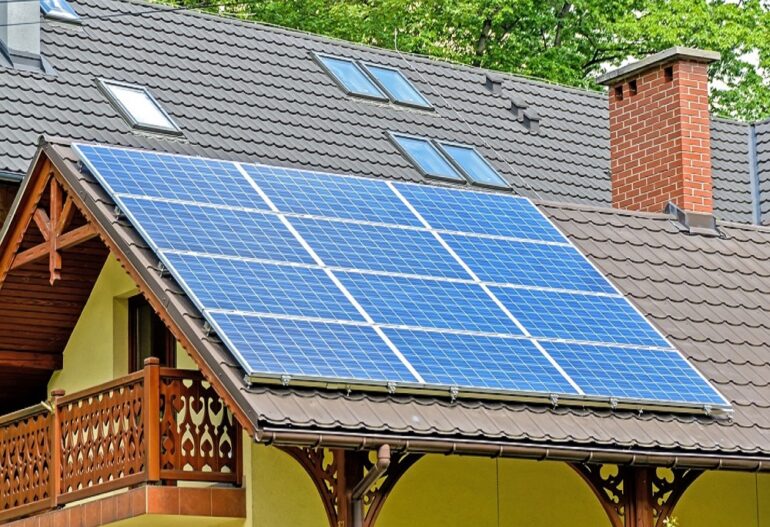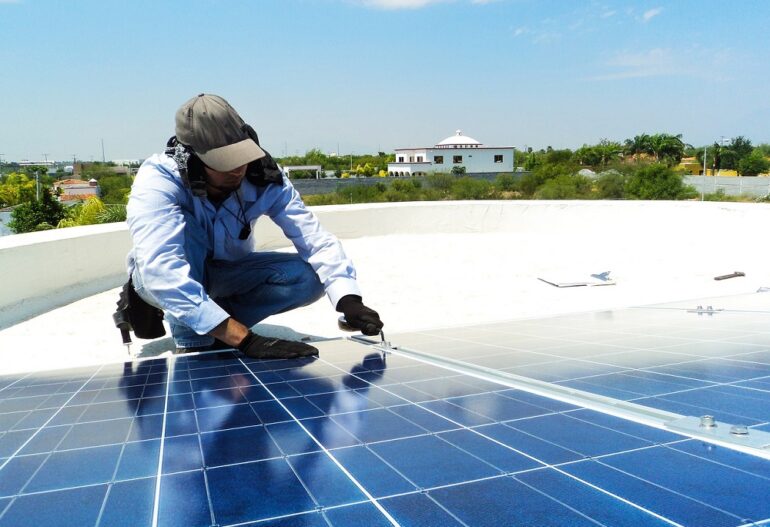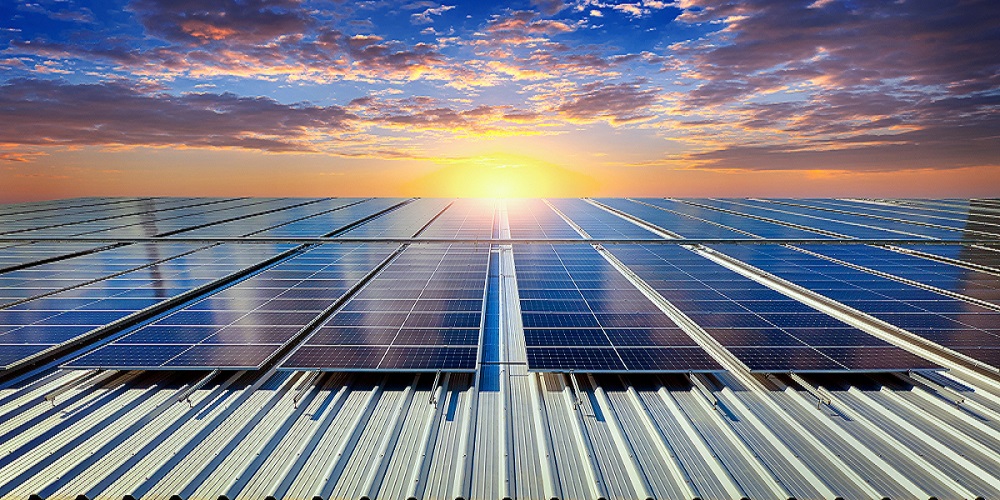What are the Advantages and Disadvantages of Solar Energy, 2023
As we all know that in recent years, there has been a remarkable shift towards renewable energy. Solar energy is an environmentally friendly energy source that produces no greenhouse gas emissions. It is also free of cost and absolutely non-polluting energy. Solar power, derived from the sun’s radiant energy, presents many advantages that make it an interesting alternative to conventional fossil fuel-based energy sources. However, like any technology, solar energy also harbors limitations and drawbacks. With this article, let us explore the advantages and disadvantages of solar energy, examining its functionality, the advantages of rooftop solar panels, and the overall impact of solar energy in 2023.
Before we proceed, let’s gain a better understanding of the functioning of solar energy.
Solar energy operates by harnessing the sun’s radiant energy through photovoltaic (PV) panels or solar thermal systems. PV panels convert sunlight into electricity, while solar thermal systems use sunlight to heat water or air. This clean and renewable energy source has immense potential and can significantly reduce reliance on fossil fuels.
From rooftop solar panels to the broader impact on the environment and economy, let’s examine the positive aspects of solar energy. Simultaneously, let us not forget about the challenges and drawbacks that need to be overcome for solar energy to reach its full potential.
When considering installing solar panels for homes, it is important to look at the advantages and disadvantages of solar energy from a homeowner’s perspective.

Advantages of Solar Energy:
- Renewable and Environmentally Friendly: One of the greatest merits of solar energy lies in its renewable nature. The sun, an abundant source of energy, will continue to radiate for billions of years, ensuring a perpetually available resource. Moreover, solar energy production is clean, emitting no greenhouse gases or pollutants, thereby facilitating carbon footprint reduction and combatting climate change.
- Cost Savings: The installation of solar panels on rooftops empowers homeowners and businesses to generate their own electricity, resulting in substantial cost savings on utility bills. With efficient planning and systems in place, surplus energy can be fed back into the grid, potentially transforming solar energy users into energy producers who earn revenue through net metering programs.
- Energy Independence: Solar power offers individuals and communities the opportunity to achieve energy independence. By generating electricity on-site, reliance on external energy sources and vulnerable power grids is minimized. This advantage proves particularly valuable in remote areas or during natural disasters when access to conventional electricity may be limited.
- Job Creation and Economic Growth: The solar energy sector has witnessed remarkable expansion, leading to the creation of a significant number of employment prospects and contributing to economic growth. In 2023, the sector continues to drive economic growth, attracting investments, fostering innovation, and fueling sustainable development.


Solar Energy Disadvantages:
- Initial High Costs: While the long-term benefits of solar energy are undeniable, the initial installation costs can pose a significant barrier for many individuals and businesses. The expenses associated with purchasing and installing solar panels, along with additional equipment like batteries and inverters, can amount to a substantial investment. However, falling prices and government incentives are gradually making solar energy more affordable and accessible.
- Weather Dependence: Solar power generation relies on the availability of sunlight, making it intermittent and weather-dependent. Cloudy days, shorter daylight hours in winter, and geographical location can impact the efficiency of solar panels. To ensure a consistent power supply, additional energy storage systems or grid connections are necessary, which can add complexity and cost to the solar energy system.
- Land and Space Requirements: Large-scale solar farms necessitate extensive land usage, which can have environmental and social implications. Concerns such as land use conflicts, habitat disruption, and landscape alteration arise with the expansion of solar energy. Nonetheless, the utilization of rooftop solar panels and innovative solutions like floating solar farms can mitigate these issues.
- Resource Limitations: While the sun’s energy is virtually limitless, the production of solar panels requires specific materials, such as silicon, which can be resource-intensive to extract and process. Furthermore, the disposal of decommissioned solar panels poses challenges related to recycling and proper waste management. Research and development efforts are underway to explore more sustainable and efficient materials and recycling methods.
The Impact of Solar Energy in 2023
The year 2023 marks a significant turning point in the global energy landscape, as solar energy continues to make a profound impact. With the continuous decline in the prices of solar panels, combined with government incentives and supportive policies, there has been a remarkable surge in solar installations across the globe. This trend is expected to persist as more countries and communities recognize the immense environmental and economic benefits that solar energy brings.
Solar energy plays a vital role in reducing greenhouse gas emissions and combating climate change. By replacing fossil fuel-based electricity generation, solar power helps mitigate the harmful effects of carbon dioxide and other pollutants. The transition to solar energy also contributes to energy security by reducing reliance on volatile fossil fuel markets and enhancing energy independence.
Additionally, solar energy has a positive impact on local communities. Solar installations create jobs and support local economies, particularly in manufacturing, installation, and maintenance. Moreover, solar energy systems can provide electricity to remote and off-grid areas, improving access to clean and reliable energy for underserved populations.
Conclusion:
Solar energy in 2023 offers significant advantages in terms of sustainability, cost savings, energy independence, and job creation. However, challenges such as initial installation costs, intermittency, and land requirements need to be addressed to maximize its potential. As technological advancements continue and governments worldwide prioritize renewable energy, solar power will play an increasingly crucial role, and solar energy works in shaping a greener, cleaner, and more sustainable future for generations to come.
FAQs
Solar panels are compatible with a wide range of homes, surrounding residential houses, apartments, and commercial buildings. Nevertheless, factors such as roof orientation, available space, shading, and local regulations can impact their feasibility and suitability for installation.
Photovoltaic panels have the capability to generate power using both direct and indirect sunlight, although their efficiency is highest under direct sunlight. Solar panels can still operate effectively even when sunlight is partially blocked or reflected by clouds. In fact, rain can benefit solar panels by cleansing away dust and dirt, helping to maintain their optimal performance.
Solar energy is a dependable and renewable energy source that utilizes the sun’s rays to generate power. Through the use of photovoltaic panels and other solar technologies, sunlight is captured and transformed into electricity, providing a sustainable and environmentally friendly energy solution.
Solar panels demonstrate long-term efficiency, with a slight decrease over time. Regular maintenance and technological advancements enable them to consistently produce significant electricity for many years, often with warranties extending for 25 years or more.
When considering investing in solar panels, important factors to evaluate include:
- available roof space,
- roof orientation and tilt,
- shading from surrounding objects,
- local climate conditions,
- energy consumption patterns,
- budgetary considerations,
- potential government incentives, and
- consulting with solar professionals for expert advice.

Ileen Kaur (Author)
Ileen Kaur is an exceptional content writer, bringing her expertise and creativity to the digital realm. With a passion for storytelling and a knack for crafting compelling narratives, she has the power to captivate audiences and leave a lasting impression.

